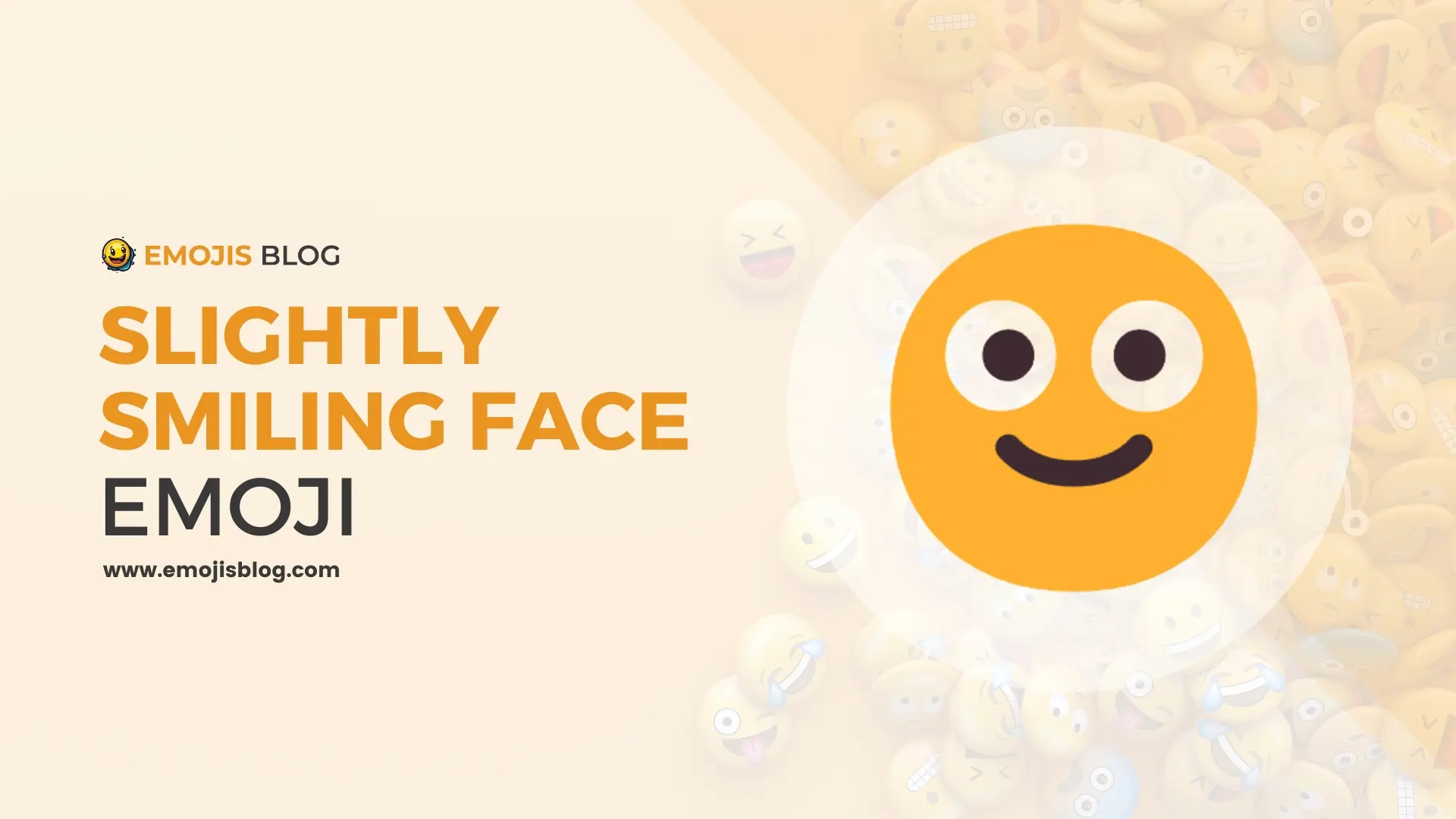What Does The Slightly Smiling Face Emoji 🙂 Mean?
🙂
Slightly Smiling Face Emoji 🙂 Meaning
The 🙂 emoji, commonly known as the “slightly smiling face,” is a digital icon depicting a yellow face with a simple, closed-mouth smile. It’s often used to convey a sense of mild, polite happiness or general positivity. Its understated expression can also imply a range of subtle emotions, from mild approval and acknowledgment to a polite, non-committal response. The emoji’s versatility allows it to be employed in various contexts, including softening statements, adding a light-hearted tone to messages, or indicating a friendly yet formal communication style.
Technical Information
| Attribute | Details |
|---|---|
| Emoji | 🙂 |
| Name | Slightly Smiling Face |
| Unicode Version | Unicode 6.1 (2012) |
| Emoji Version | Emoji 1.0 (2015) |
| Category | Smileys & Emotion |
| Subcategory | Face-Smiling |
| Codepoints | U+1F642 |
| Shortcode | :slight_smile: (in some platforms) |
| Description | A yellow face with simple, open eyes and a closed, modest smile. Often conveys general happiness and good-natured amusement. |
| Variations | None (standardized without skin tones) |
| Platform Variations | Different platforms (Apple, Google, Microsoft, etc.) may display this emoji with slight design variations, but the overall concept remains consistent. |
Understanding the 🙂 Emoji: A Comprehensive Guide
In the digital age, communication has transcended the barriers of language and geography, thanks in part to the universal language of emojis. Among these, the 🙂 emoji, often referred to as the “slightly smiling face,” holds a unique place. This article delves into the meaning, usage, and cultural significance of this emoji.
The Origin and Design of the 🙂 Emoji
Historical Background
The 🙂 emoji first appeared in the late 1990s as part of the early emoji sets. Its design is simple yet expressive: a yellow face with a modest, closed-mouth smile.
Design Variations Across Platforms
While the basic design remains consistent, slight variations exist across different platforms like Apple, Google, and Microsoft, reflecting subtle differences in expression.
The Meaning Behind the 🙂 Emoji
Surface-Level Interpretation
At face value, the 🙂 emoji represents a mild, polite smile. It’s less exuberant than the full smile emoji and is often used to convey a sense of calm, happiness, or general positivity.
Nuanced Emotional Expressions
The emoji can also express a range of subtle emotions, including:
- Mild approval or acknowledgment
- A polite but non-committal response
- A subtle hint of sarcasm or irony
Cultural Interpretations and Usage
Global Understanding
Globally, the 🙂 emoji is recognized and used, but its interpretation can vary based on cultural contexts. In some cultures, it’s seen as genuinely warm, while in others, it might be perceived as reserved or even passive-aggressive.
Usage in Digital Communication
In texts, social media, and emails, the 🙂 emoji serves various purposes:
- Softening a statement
- Conveying light-heartedness
- Indicating a friendly but formal tone
Psychological Perspective
Emotional Impact on Communication
Psychologists note that the 🙂 emoji can affect the tone of digital conversations. It often adds a layer of emotional nuance, making messages seem more personable and less stark.
Misinterpretations and Ambiguity
The ambiguity of the 🙂 emoji can sometimes lead to misunderstandings, especially in cross-cultural communications where the subtleties of digital expressions may be interpreted differently.
Conclusion
The 🙂 emoji, a staple in modern digital communication, is a testament to the complexity and richness of online interactions. While it primarily conveys a sense of mild happiness or politeness, its usage can be nuanced, reflecting a range of emotions and intentions. As with all forms of communication, understanding the context and cultural background is key to deciphering its true meaning.

